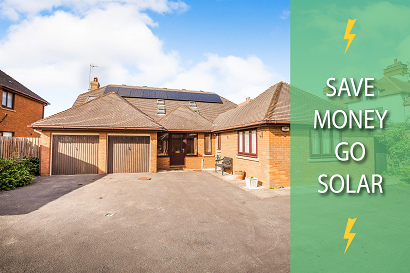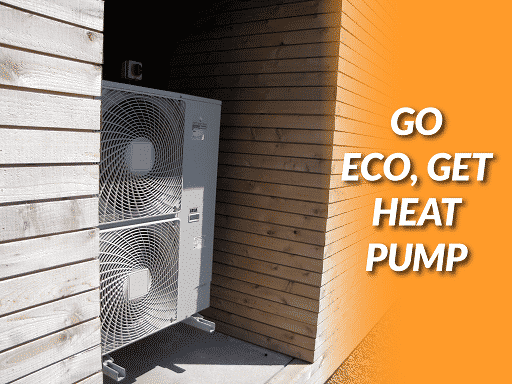Renewable energy technologies such as solar PV and solar thermal are now quite commonly seen on homes throughout the UK. In fact, recent figures for the end of 2013 reveal that about half a million homes in the UK have solar panels installed, and each week another 1900 are reportedly added. Most people asked about green energy technologies would probably mention solar panels and wind farms. Other renewable technologies like biomass and air source heat pumps have a much lower profile among the public most likely because they are not as visible to the naked eye. With the introduction of the renewable heat incentive (RHI) this spring, there has never been a better time to consider other heat producing technologies suitable for the home. More and more people are turning away from relying on fossil fuels and the inherent volatility within the energy sector and looking for more sustainable sources of energy.
As more and more people turn to green energy, choosing the best renewable energy technology for the home is very important. Installation costs for these technologies are not cheap so choosing the most beneficial for your home should be fully discussed with an expert in the field.
Solar Energy
For many, solar panels may be the most obvious choice when it comes to green energy, but it may not be the most beneficial for your home. Sunlight is free obviously, so after installation, running costs are low. And even on a cloudy day, solar panels continue to generate energy so the location of your home in Scotland is not a factor.
What would render solar panels unsuitable or at least less beneficial would be if the largest roof area for panels is north-facing. Another consideration is whether your roof can physically support the panels. Solar panels are best on sunny east, west and south-facing roofs.
The pros of installing solar PV panels, which generate electricity, are that they entitle your home to the Feed-in Tariff. You are paid for the energy you generate – even if you use it yourself, and for any electricity that you export to the national grid. They also save you money as you are using less electricity from your energy supplier.
Solar thermal panel installation which enables you to heat your water through solar energy, entitles you to the RHI which will provide payment to you for 7 years following the installation. And similarly, you save money on your energy bills too.
Domestic Biomass Boilers
Domestic biomass boilers are a less obvious choice for homeowners, but they have distinct advantages over other forms of space and water heating. Most importantly is that the RHI would be immediately accessible thereby providing a financial advantage. However, biomass heating will also reduce your carbon footprint. It is estimated that heating a home using wood chip as a biomass fuel will reduce your carbon dioxide emissions by up to 30 times compared to gas and oil heating systems.
If you are considering biomass, then investigate whether you have a local supplier of fuel, or whether you can get your own. Furthermore, a large, dry convenient place to store your fuel is important. Domestic biomass boilers are larger than conventional boilers so ensuring that you have a large enough space to install it is a consideration. Biomass heating systems are best suited for homes which are off-grid and rely on oil or bottled gas.
Air Source Heat Pumps
Ground and air source heat pumps extract heat from the ground and air using electricity but the cost of running them is much lower than conventional electric heating. They are also eligible for the RHI. Their installation is dependent on whether there is space available on the outside of your home. They are most efficient when used with underfloor heating systems as the temperature required to heat the water is lower. Your home will also need to be well insulated for the heating to be effective. Heat pumps are best suited to homes where the current heating system is electricity based.
Finding the best green technology for your home requires careful consideration. Getting it right can potentially save you lots of money. Make sure that you do your research well and understand all the pros and cons for the renewable energy technology of your choice.
If you have any questions about installing renewable energy to your home, please do get in touch for a chat.



